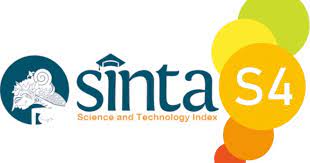Identifying EFL Learners’ Uptakes in Response to Corrective Feedback
DOI:
https://doi.org/10.22219/englie.v1i1.13164Abstract
Corrective feedback is often intended to draw learners' attention to repair linguistic forms when performing communicative activities. While researchers argue that feedback plays a role in L2 development, some teachers doubt what type of feedback is suitable for certain errors. Another issue is whether or not the given feedback is incorporated or responded by the learners. This current study focuses on two corrective feedback, namely recast and elicitation. It aims to identify which feedback elicits more uptakes from the learners. Besides, since uptakes may come in different forms, the study investigates the types of uptakes generated by learners in response to the given feedback. By involving EFL learners in a communicative task and analysing the feedback and uptake that appeared during the task, it was found that recast has elicited more uptake than elicitation. The uptake yielded includes repetition, acknowledgment, and incorporation, with repetition showing the highest frequency.
Downloads
References
Asari, Y. (2015). How to effectively provide recast in a foreign language classroom. Dialogue, 13, 1-9.
Baleghizadeh, S., & Abdi, H. (2010). Recast and Its Impact on Second Language Acquisition. International Journal of Language Studies, 4(4).
Egi, T. (2010). Uptake, modified output, and learner perceptions of recasts: Learner responses as language awareness. The modern language journal, 94(1), 1-21.
Ellis, R. (2009). Corrective feedback and teacher development. L2 Journal, 1(1).
Gloria, S. O. T. O., Clarke, M. T., Nelson, K., Starowicz, R., & Savaldi-Harussi, G. (2020). Recast type, repair, and acquisition in AAC mediated interaction. Journal of child language, 47(1), 250-264.
Ito, K. (2015). Recast and elicitation: The effectiveness of corrective feedback on Japanese language learners.
Jafarigohar, M., & Gharbavi, A. (2014). Recast or Prompt: Which One Does the Trick?. Procedia-Social and Behavioral Sciences, 98, 695-703.
Jang, S. S. (2010). The interaction of mediating factors in recast efficacy on noticing and L2 development. 응용언어학, 26(4), 49-79.
Lyster, R. (1998a). Negotiation of form, recasts, and explicit correction in relation to error types and learner repair in immersion classrooms.
Language Learning, 48, 183- 218.
Lyster, R., & Ranta, L. (1997). Corrective feedback and learner uptake: Negotiation of form in communicative classrooms. Studies in Second Language Acquisition, 19(1), 37-66.
Lyster, R., Saito, K., & Sato, M. (2013). Oral corrective feedback in second language classrooms. Language teaching, 46(1), 1-40.
Morris, F. (2005). Child-to-child interaction and corrective feedback in a computer-mediated L2 class. Language Learning & Technology, 9(1), 29-45.
Nicholas, H., Lightbown, P. M., & Spada, N. (2001). Recasts as feedback to language learners. Language learning, 51(4), 719-758.
Panova, I., & Lyster, R. (2002). Patterns of corrective feedback and uptake in an adult ESL classroom. Tesol Quarterly, 36(4), 573-595.
Pei-zhi, Y. (2012). Re-examing the Definitions of “Recast” in L2 Research. Foreign Language Research, (6), 32.
Rezaei, S., & Derakhshan, A. (2011). Investigating recast and metalinguistic feedback in task-based grammar instruction. Journal of Language Teaching and Research, 2(3), 655.
Sepehrinia, S., Zarea, A., Moghaddam, M. S., & Nasiri, M. (2011). From perceptions to practice: Factors affecting recast. International Journal of English Linguistics, 1(2), 18.
Sheen, Y. (2004). Corrective feedback and learner uptake in communicative classrooms across instructional settings. Language teaching research, 8(3), 263-300.
Sheen, Y., & Ellis, R. (2011). Corrective feedback in language teaching. Handbook of research in second language teaching and learning, 2, 593-610.
Ware, P. D., & O'Dowd, R. (2008). Peer feedback on language form in telecollaboration. Language Learning&Technology, 12(1), 43-63.
Woodward, S. W. (1997). Fun with grammar: communicative activities for the Azar Grammar series. New Jersey: Prentice-Hall Regents.
Zhuo, C. (2010). Explicit Recast, Implicit Recast, and the Acquisition of English Noun Plural: A Comparative Study. Chinese Journal of Applied Linguistics (Foreign Language Teaching & Research Press), 33(6).
Downloads
Published
How to Cite
Issue
Section
License
Copyright (c) 2020 Rahayu, E. L.

This work is licensed under a Creative Commons Attribution-ShareAlike 4.0 International License.
Authors who publish with English Learning Innovation (englie) agree to the following terms:
- For all articles published in English Learning Innovation (englie), copyright is retained by the authors. Authors give permission to the publisher to announce the work with conditions. When the manuscript is accepted for publication, the authors agree to automatic transfer of the publishing right to the publisher.
- Authors retain copyright and grant the journal right of first publication with the work simultaneously licensed under a Creative Commons Attribution-ShareAlike 4.0 International License that allows others to share the work with an acknowledgement of the work's authorship and initial publication in this journal.
- Authors are able to enter into separate, additional contractual arrangements for the non-exclusive distribution of the journal's published version of the work (e.g., post it to an institutional repository or publish it in a book), with an acknowledgment of its initial publication in this journal.
- Authors are permitted and encouraged to post their work online (e.g., in institutional repositories or on their website) prior to and during the submission process, as it can lead to productive exchanges, as well as earlier and greater citation of published work (See The Effect of Open Access).
This work is licensed under a Creative Commons Attribution-ShareAlike 4.0 International License.

















1.png)












